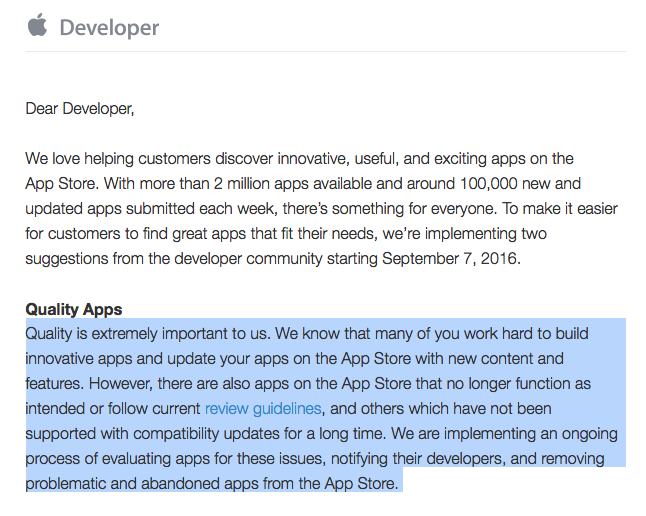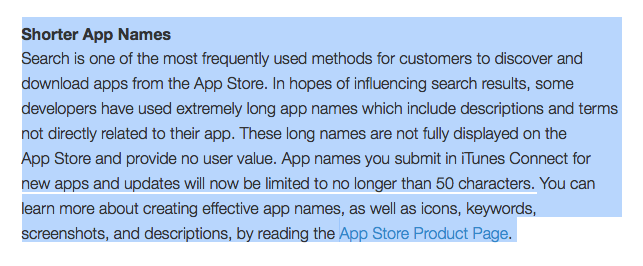
Mobile app publishers got a reminder to up their game this morning from Apple: Clean up your deadwood.
It’s clearly not an optimal situation for smartphone and tablet owners to visit an app store that is full of long-abandoned apps that are now incompatible with modern devices. In 2014, almost 80% of all the apps on the App Store were “zombie apps,” apps that don’t really get any installs. In 2015, that percentage reached 83%.
Now Apple’s moving to fix the problem, saying that it will be evaluating and potentially removing problematic or abandoned apps.

It’s not uncommon for developers to abandon apps — perhaps 20% of apps on iOS and a similar slice on Google Play simply don’t get enough attention, downloads, or usage to make it economically worthwhile for developers to continue to support and update them. With millions and millions of apps, some mobile publishers churn out apps quickly and cheaply, and then support those that seem to find a niche. Another big slice of abandoned apps, of course, is from hobbyist who want to “have made an app,” and once their ambition is fulfilled, largely ignore it.
Serious mobile developers, however, should take a quick check of their app portfolio to ensure none of their apps are at risk.
Long app name? Beware
Apple also warned mobile app publishers of one more thing: long app names. Specifically, not to use them. Apple will be capping app names at 50 characters, and we have bad app store optimization (ASO) to blame for it:

Getting better ranking in search results is a major challenge, of course — something we just analyzed the top 50,000 apps and billions of ratings, reviews, and other app metadata to understand. However, creating a long keyword-filled app name will no longer be a successful strategy.
Get our full report on how to win App Store and Google Play search for free here.
Author
Before acting as a mobile economist for TUNE, John built the VB Insight research team at VentureBeat and managed teams creating software for partners like Intel and Disney. In addition, he led technical teams, built social sites and mobile apps, and consulted on mobile, social, and IoT. In 2014, he was named to Folio's top 100 of the media industry's "most innovative entrepreneurs and market shaker-uppers." John lives in British Columbia, Canada with his family, where he coaches baseball and hockey, though not at the same time.




I think that’s not major problem. Apps should be more useful to use. Hope it will solve..